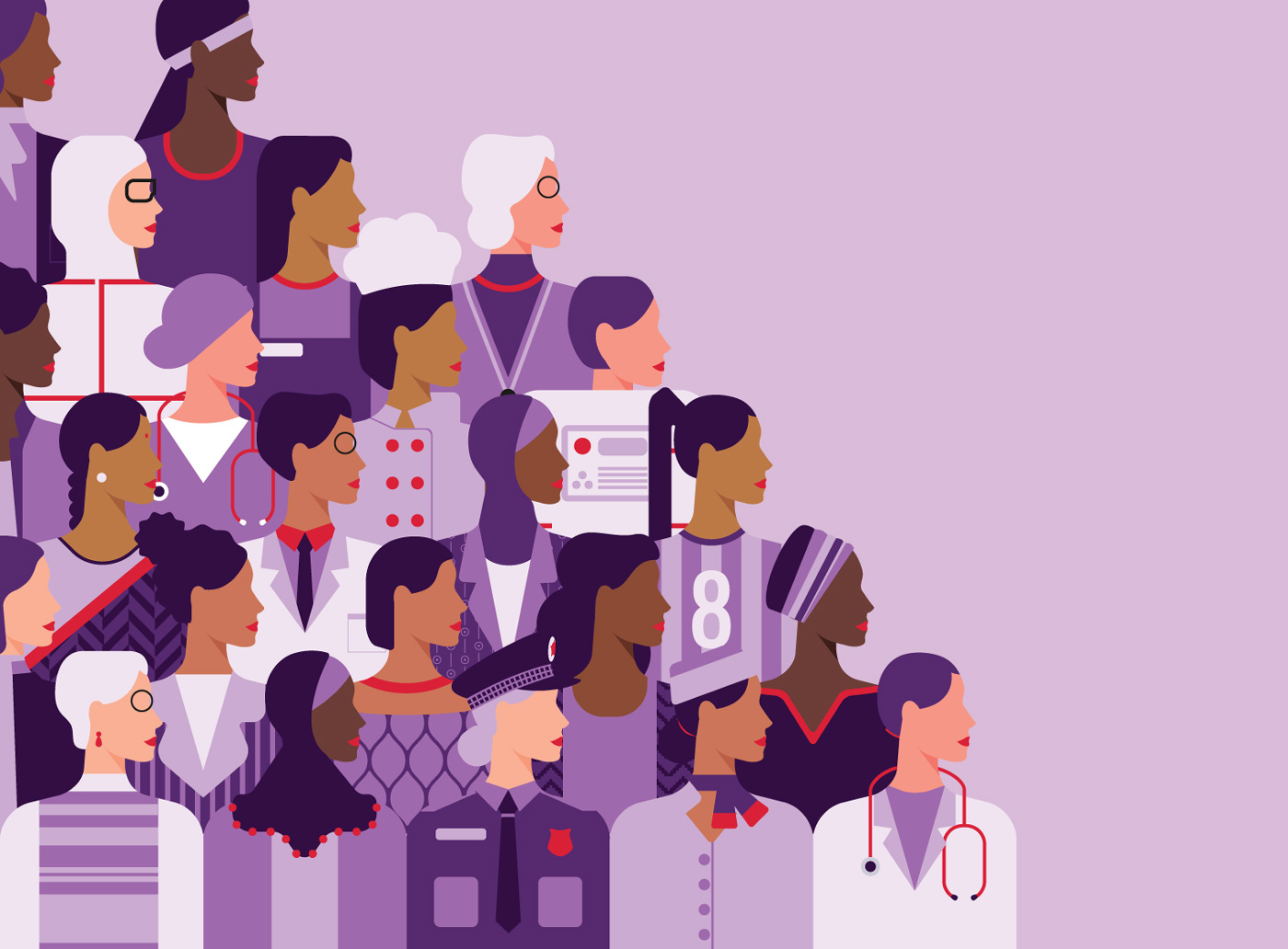When, more than a decade ago, I found myself at a major turning point in my career, all I could think of was “Can I make it?” and “Perhaps I should play it safe.”. I didn’t, and today I’m glad that I took that leap of faith—in myself—and pursued something that has been more fulfilling and has made me happier. I am grateful for those few people that said “Change is OK” and pointed out that “it doesn’t matter if you don’t get it right the first time.”
This Leading Women in Business special looks at the power of change in our lives. In line with the upcoming 7th WIB Forum, we have asked Thought Leaders from AmChamGR’s Women in Business (WIB) Committee and WIB Forum to share their experience and thoughts on facing, embracing and building on change.
Welcome to a very special episode of the Thought Leaders series of Business Partners magazine.
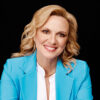
We Are WIB
By Myladie Stoumbou, Chair of the Women in Business Committee
The American-Hellenic Chamber of Commerce Women in Business Committee (WIB) is a dynamic group of female leaders who are committed to empowering and supporting women in the workplace and who advocate for stronger women’s participation in all sectors of the economy. WIB leverages best practices, promotes role modeling, embraces storytelling, and creates networking opportunities in order to champion women in business leadership, strengthen diversity and inclusion, and influence and inspire around more equity in the business environment.
Despite progress made, women still face significant barriers to empowerment in the workplace. These obstacles include gender bias and stereotypes, limited access to training, discriminatory policies and practices, and work-life balance challenges. These barriers make it challenging for women to advance in their careers and reach leadership positions.
Women must be at the center of growth for Greece
In Greece, following the introduction of Law 4706/2020, women account for 25.9% of seats on boards of publicly listed companies. However, the picture appears less promising when it comes to women heading companies or organizations: Based on EU data less than 10% of publicly listed companies have women in CEO or Chair positions.
Having more women leaders is essential for achieving gender equality, for creating a more diverse and inclusive work environment, and for achieving better business outcomes. Gender diversity fosters increased innovation and creativity, better problemsolving, and improved employee morale.
The WIB Committee employs four different strategies to support women’s empowerment:
- Partnering with government and private sector institutions to influence policymaking and decisionmaking around diversity and inclusion.
- Public Debate. Organizing events to raise awareness on major areas of diversity and inclusion and present best practices.
- Thought Leadership. Conducting surveys, writing articles, and sharing our positions with the media.
- Offering voluntary counseling to the youth, mainly university students and young professionals.
In this journey, there are three major opportunities: The first opportunity comes from the acceleration of digital technology and the associated economic opportunity. Today, there are four times more men than women working in the digital sector, when the deficit of talent with strong digital skills is counting thousands of jobs at the European level. At WIB, we are partnering with government agencies and the private sector to encourage young women and girls to pursue studies in science and technology fields, support female founders to grow their digital businesses, and empower more women to participate in the digital economy.
The second opportunity comes with the emergence of hybrid work, which offers more flexibility and can support, in the longer term, more women to effectively combine having a career with family/private life. Flexible working arrangements provide greater possibilities for entering the labor market, retaining full-time jobs, or striking a better work-life balance. At WIB, we are partnering with government institutions and the private sector to help develop the regulatory framework that would support more flexible working arrangements for the women who need it.
Finally, there is the leadership element. Over the past couple of years, we have experienced an increasing number of companies focusing on taking care of their employees—ensuring they are healthy, offering wellbeing benefits, and extending caregiving leaves. Through these acts, large and small, organizations are showing that the new leadership paradigm is no longer one of “command and control”; during adversity, organizations are becoming people-centric, putting the wellbeing of their employees at the center of what they do.
Women leaders play a big role in this shift. Having women in leadership positions should become the norm, not the exception. Companies with gender diverse executive teams are more likely to embrace employee-friendly policies and programs and to champion gender equality. Women leaders more often take a public stand for gender equity at work and are more likely to mentor and sponsor other women and act as role models. They inspire. They empower.
Today, women are made for technology, for business, for service. Women are fit to lead. Women are proving that career and family can go together. We, at the Women in Business Committee, do not settle for inequality, we choose to challenge stereotypes and bias. We aim to support all women in the workplace to have a stronger voice. Women must be at the center of growth for Greece. It matters for us and for our daughters. It matters for our future.

Turning Points to Breakthroughs | 7th WIB Forum, June 7, 2023
By Agnes Mariakaki, Research Psychologist and CEO of MindSearch
The first thing to understand about the frenetic forces of change in the workplace is that they are not going away any time soon. The new normal in business includes the unpredictable, the uncertain, and the unexpected—and continuous disasters. Not only our careers, but our whole world will keep reshaping. The way we think, decide, relate, and solve problems will be constantly challenged. And we will find ourselves way too often at crisis points in our personal and work lives.
The ability to shape turning points into breakthroughs will be part of the growth mindset of the future. Our ability to disrupt ourselves while we embrace transitions will be part of our quality of life in a kaleidoscope world in which perspectives are constantly shifting.
AmChamGR’s Women in Business (WIB) Committee will host its 7th WIB Forum on June 7, 2023, at the Stavros Niarchos Foundation Cultural Center, presenting practical, actionable, hands-on blueprints on managing personal and business change and on standing strong and staying creative at crisis points. Featuring a number of renowned speakers, leaders in academia and business, the Forum will explore different aspects of transforming turning points into breakthroughs:
- Building the compass: Turning points often do not provide warning nor allow time for preparation and smooth adjustment. So how do we build a strong compass that allows us to stay the course, remain focused and look ahead to the steps that will create the breakthrough?
- Rising together: Having a tribe and ensuring support during tough times takes commitment, but it is also what makes the difference in building the strength needed, ensuring the support that lights the path and the sense of connection that sustains the effort.
- Managing uncertainty: Uncertainty is perhaps the toughest challenge and the single biggest factor that can keep people from fulfilling their potential. Becoming fearless in the face of the unknown requires wisdom, precision and attention but is worth the result.
- Purpose and meaning: A sense of personal purpose and meaning can provide steadfastness when perspectives and horizons expand radically. The challenge is to preserve a steadfast sense of purpose as a foundation for stamina and endurance even when workplace reality is turned upside down.
- Catalyzing turning points: The ability to catalyze turning points at work will be the new charisma to aspire to.
The Forum will also examine the findings of a study on facing change, pioneered by the WIB Committee in collaboration with the University of West Attica, which seeks to map changes most often encountered in the workplace and explore what hinders and what empowers career people as they navigate turning points. The study’s findings will serve as a backbone of understanding, providing rich insights into the challenges of escalating change.
The Women in Business Committee invites all those who want to have clarity about responding creatively and purposefully to unexpected challenges to participate and become part of the tapestry of learning at the 7th WIB Forum.
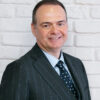
Lessons I Learned from Turning Points
By Yannis Dimarakis, Managing Partner, Scotwork Hellas
Life’s turning points can stem from many different sources. Whether internal, driven by our choices and decisions, or external, occurring as consequences of external factors out of our control, turning points reconfigure our lives. It is very hard to imagine a life without any turning points—such a life would be dull, uneventful, hardly worth living. Having had my fair share—maybe even more—of turning points, there are three lessons I have learned that helped me unleash new possibilities:
- Stay positive. No matter how dramatic the events that transpire, the circumstances that prevail and the magnitude of change that is brought upon you, it is important to maintain a positive attitude and identify the best possible outcome.
- Be realistic. Most turning points do not bring about the end of the world. They often seem like they do, but they don’t. The opposite is also true. They will rarely result in a perfect (for you) world. Keep your feet on the ground and assess your options realistically.
- Don’t look back. Act as if there is no Plan B. Stay focused on your goal and make the most of the hand you have been dealt. Apply yourself with all your mental and physical resources. Keep going and don’t look back.
And one last, bonus remark: Our handling of turning points is very telling of the traits of our character and mental stamina. Treat them as an opportunity to get to know yourself even better.
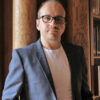
Embracing Change
By Roman Gerodimos, Professor of Global Current Affairs at Bournemouth University and faculty member at the Salzburg Academy on Media and Global Change
The truth is that I am, by nature, risk averse. I opt for continuity, security, and rituals, as opposed to change and the unexpected. In other words, I dislike and mistrust surprises. Let’s be honest: It is not very often that a surprise is a positive experience. Achievements, success, and sustainable growth are only ever the result of painstaking hard work, meticulous planning, and careful reflection on what worked and what didn’t. You don’t get offered these things on a platter.
Having said all that, it’s deeply ironic that some of the most transformative and insightful experiences of my life have emerged as a result of the unexpected, of the things you can’t or don’t control; usually—but not always—key moments of failure: a project not going as planned, a promotion that is denied, a painful breakup.
It is during those challenging moments that I had to confront and re-evaluate my priorities or modus operandi; that I forced myself to step outside my comfort zone. This could mean letting go of expectations or deciding to focus on projects that brought meaning and creative fulfilment rather than ticking corporate boxes or challenging myself to experience places and situations that I wouldn’t normally put myself through. Each of those turning points became a process of liberation from mostly mental barriers (or what in political science we call “path dependence”) and helped me grow and get a bit closer to my true self.
If you, like me, find even the prospect of change unpleasant, it helps to remember that there is always room for improvement.
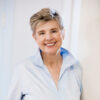
Who Before How
By Sally Helgesen, Author, Speaker, Leadership Coach
The first thing I do when confronting a turning point—a painful situation, a confusing choice, an insight or dream I’d like to act on—is to consider who might give me good advice. Who’s been in this situation? Who handles such dilemmas well? Who has a good read on the kinds of mistakes I’m prone to make? And then, before taking action, I call that person.
That’s because I’m a big believer in the idea of not doing it—it being life—alone. Not imagining I can correct the kind of mistakes I routinely make, or devise the best possible path without support. So I always start with the who before moving on to the how.
This approach requires nothing so formal as a personal board of advisors. I’ve seen that recommended, but it sounds like a lot to manage. Besides, some of those advisors will be good at one thing, others at something else. So convening them in order to address a specific situation seems redundant and a waste of everybody’s time. I may rely on my peer coach, who is skilled at discerning the lessons and gifts that lie hidden in many of life’s challenges. Or I may consult with a colleague who has specific expertise in a subject. The circumstances will shape the decision.
My “who first” mantra keeps me on track and prevents me from feeling overwhelmed. Which is the least likely frame of mind for discerning opportunity.
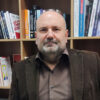
The Visible Is the Shell of the Invisible
By Ioannis Salmon, Associate Professor of Business Administration, University of West Attica
I got out of the theatre and the phrase that was heard in the venue still echoes in my head. It reminds me how my past is interrelated with my present and my vast future; it confirms to me once again the possibility that true perspective, breath and life lie behind this shell. This shell is essentially our ego, which covers the wealth that other people offer us, intentionally or not, and can lead us to a better and deeper understanding of this world. It leads us to life. In this concept, every moment of blindness, every moment of arrogance sucks the oxygen out of our atmosphere. It is quite possible that intelligence emerges from the bottom up, especially since there seems to be no single point that determines how our brains function. It is essential then, that every part of the system is taken into consideration, to achieve harmony with the external environment; and each part should feel so comfortable that it talks to you like a friend. Without any facade. To arrive at your place of work and welcome the gardener’s spontaneous greeting—“Ioanni, kalimera!”—without worrying about losing precious time, or to take a minute to hear the janitor’s concerns about their grandchildren, understanding that these interactions are perhaps the most meaningful part of your day. Because inside them underlies the transcendence. And there comes love.

Building Up Resilience
By Tatiana Kolovou, Teaching Professor, Kelley School of Business Faculty and LinkedIn Learning Instructor
Resilience is all about bouncing back from adversity and in some cases, bouncing forward. In 2018, I opened a small boutique fitness studio, Ethos Fitness in Bloomington, Indiana, where I live. I have always believed that exercise and movement are transformational, and this entrepreneurial venture was my way of giving back to my community. The business was doing well, and we were having an impact. All until March 2020, when the world as we knew it changed forever. I distinctly remember the quandary; do we forge ahead into unchartered waters or close the business with the valid excuse of the global pandemic? Maybe it was my endless optimism, or possibly the Greek fighter in me, but I chose to do the first. We rented out equipment, figured out a business Zoom account and made repeated mistakes while trying to figure out virtual fitness classes. I am proud to say that today, this virtual setting has become our competitive advantage. We offer most all our group fitness classes in person but simultaneously broadcast and record them for our members who prefer to stay at home, may have sick children or hectic schedules. We can offer a hybrid environment to meet our busy members’ needs and all because of the adversity we faced back in March 2020. Turning points in our lives can be uncomfortable and scary, but it’s through this discomfort that we grow stronger and build more resilience for all of life’s unexpected events.
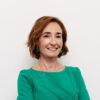
Don't Be Confined by Social Conventions
By Ani Filipova, Founder, Change Advisory
According to societal standards, I was not expected to have a successful career, let alone an international one: I came from a tiny developing country in Eastern Europe—Bulgaria—and had no Ivy League degree, no internships at top-rated companies, and no financial support or family history in banking or even business. But I didn’t let that stop me. Over the past 25 years, I have built a successful international career in one of the largest global banks. Along the way, I have learned some valuable lessons that I believe can help others who may feel like they are starting from behind:
- A university degree is only the beginning. Continuous learning is key to staying relevant and competitive.
- On-the-job learning is just as important as formal education. Don’t be afraid to take on new challenges and excel at them.
- Even if you don’t land your dream job, make the most of every opportunity and gain as much experience as you can. Every experience is valuable.
- We don’t all have an equal start. But once we start, we can put all our efforts into catching up.
- The country where we were born does not determine our desire and grit to succeed – we do.
Our society often sets narrow standards for success that can limit our potential. And we all have a unique set of circumstances which can either hold us back or propel us forward. But remember: It’s not about the cards you’re dealt but how you play them.
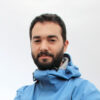
An Unexpected Business Idea Sprouted in Messinia
By Sotiris Lymperopoulos, Entrepreneur & Owner, Radiki
In 2010, I left Athens in search of a better life. I wanted to live close to nature, far from the stressful life of the big city. I moved to my father’s village in Messinia with 2500 euro in my bank account and no idea what to do for a living. Food was always my passion, so I spent a lot of time foraging wild greens and learning about traditional food from the local women in my village. I thought it would be a good idea to sell all these tasteful wild greens to chefs and restaurants interested in using these exceptional ingredients in their dishes. In the beginning, everyone thought that I was crazy and rejected my offers, as my services were expensive and my product was not valued as gourmet. Chef Periklis Koskinas was the first person that believed in me and I started foraging wild food exclusively for Milos restaurant. Two years of hard work later, we were sending fruits and vegetables to Paris and collaborating with some of the best chefs in the world. That’s when I decided that we had to focus on exports, and today we are a successful exporter of organic fruits to many EU countries. My journey has taught me that if you believe in an idea and work hard there is nothing that can stop you from succeeding.
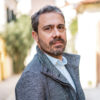
I Didn't Choose Public Archaeology – Public Archaeology Chose Me
By Dr. Ted Papakostas, Archaeologist
Being an archaeologist in Greece isn’t easy. Practically all job opportunities are within the sphere of the public sector, and traditionally, archaeological jobs have been scarce. Struggling to survive in this field, I decided to create my own public archaeology project, titled Archaeostoryteller. I wasn’t even sure how it could work. It started with posting fun facts about antiquity on social media. Soon, I was invited to speak at TEDx Athens in 2019 and things snowballed from there. I started a very successful podcast (remaining steadily in the Top 10 and Top 20 charts nationwide for more than two years on end), I have presented a documentary series on how ancient Greek texts survived from antiquity until modern times, and I have written two bestselling books on Greek antiquity, the first of which has been translated into 12 languages so far. And it all started with a couple of Instagram posts on ancient Greek vases.
None of this would have happened if I hadn’t invested in the belief that my discipline can reach a wider audience if only it is translated into a language they understand better. I couldn’t have guessed how successful this project would be, but as it turns out, even a social science, a humanity that appears to belong merely to school curricula and museums, can be transformed into something that fascinates everybody. The past, cultural heritage, human history and the wonders of the ancient world can be a part of today’s and tomorrow’s world.
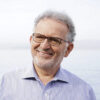
The Decisive Now in Crucial Personal Choices
By Dr. Dimitrios Karagiannis, Child Psychiatrist and Psychotherapist, Co-Founder and Scientific Director of Antistixi
Motivation for personal evolution emerges when a person faces destabilization, when they encounter different circumstances, different people, new experiences. Difference demands new understandings. A new element can be cancelled and rejected through previous conceptions and experiences, so that nothing will be disturbed. Everything will remain the same. Alternatively, however, a new chain reaction may occur, producing change.
Difficult and unpredictable situations in adult life—such as financial breakdown, traumatic divorce, unemployment, immigration, new professional roles, disability caused by an accident, an abusive or violent experience, or the death of your beloved one—may give rise to unmanageable issues for the one experiencing them. Hope does not equal waiting for negative situations to vanish. Passive patience masks despair and reveals one’s definite surrendering to their difficult reality. Constantly postponing change may serve as a Trojan horse hiding the fact that, eventually, the process of change will be aborted.
There comes a point when one must be decisive with changes, crying “Now!”—change is synonymous with freedom. The foundations of freedom stand on our decision to be everchanging. The will to change is the starting point of the human person’s efforts to escape his destiny. Change will not occur in our life at the present if there is no horizon in our future. Decisiveness lies in the dilemma to either live astonishingly or live surrendered to your fate, following what your past dictates.
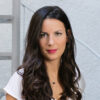
An Unexpected Awakening
By Marianna Skylakaki, CEO of αθηΝΕΑ
Becoming a mother is meant to be a major turning point in one’s life. And yet, as I was approaching that milestone around six years ago, little did I know just how deeply that experience would transform me. Up until that point, the discussion around gender issues was one that I grasped on an intellectual level; I understood there were still important gender gaps that needed to be addressed, and yet, intuitively, I did not realize their extent nor their pervasiveness. My privilege had made me partially blind to many of the injustices that continue to hold women back, stopping them from realizing their full potential.
Motherhood gave me a closeup understanding of the issues still facing women today, as they are forced to make difficult choices their partners are typically shielded from. That turning point in my personal life brought me closer to other women. It turned me outward, allowing me to seek those who could share insights on how to balance professional ambitions and family life. It was an awakening of sorts, making me realize that not only was there still a lot of work to be done to achieve true gender equality but there were also exciting and creative avenues to make change happen, as well as invaluable companions in that journey—men and women alike. The birth of my daughter was, in that sense, a blessing in more ways than one, but it was also a reason to remain committed to the pursuit of making the world in which she is growing up a more equitable place.


